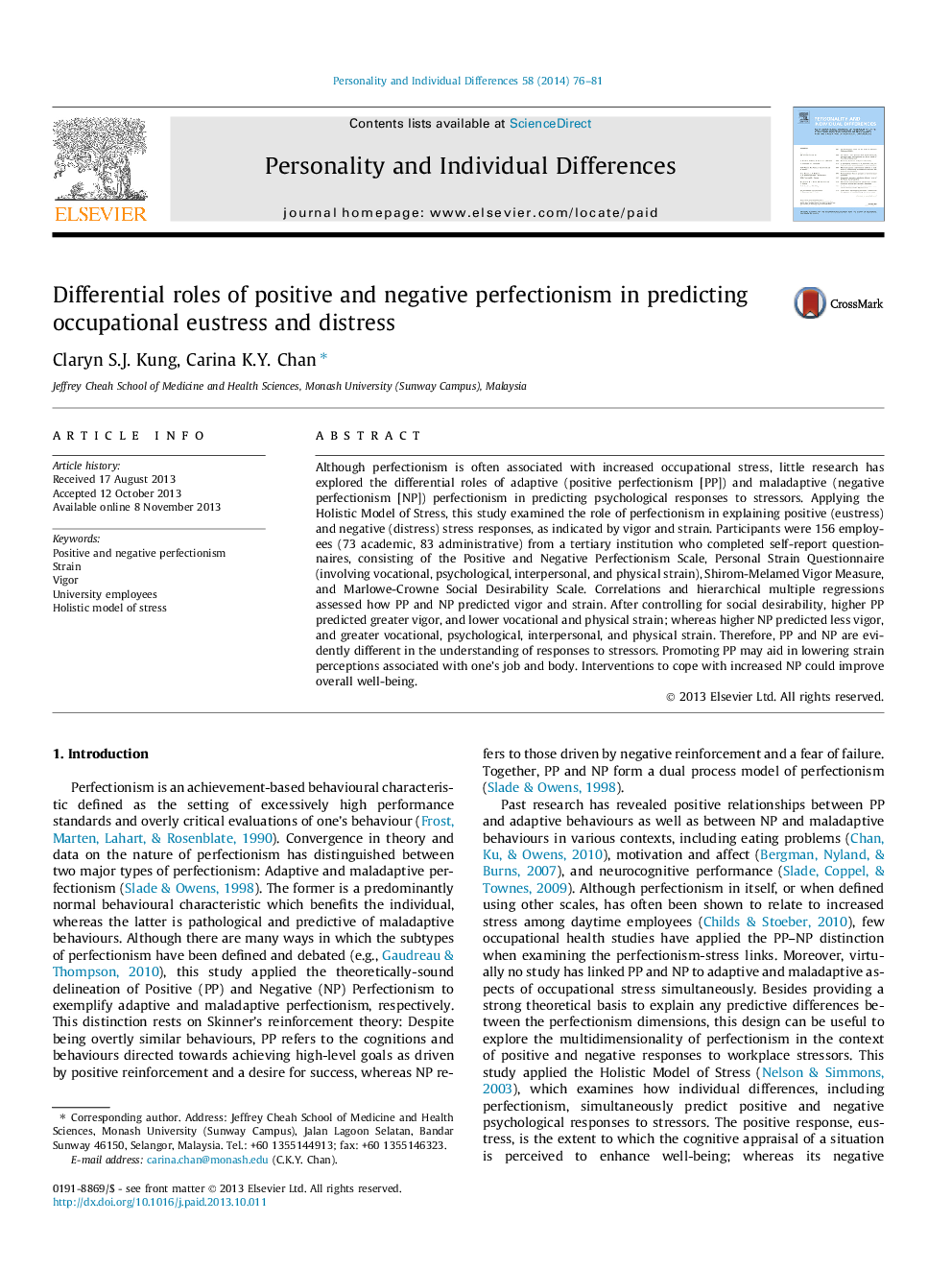| کد مقاله | کد نشریه | سال انتشار | مقاله انگلیسی | نسخه تمام متن |
|---|---|---|---|---|
| 890859 | 1472059 | 2014 | 6 صفحه PDF | دانلود رایگان |
• Two types of perfectionism (positive and negative) exist among daytime employees.
• Positive and negative perfectionism differentially predict eustress and distress.
• Positive perfectionism predicted greater vigor and less strain.
• Negative perfectionism predicted lower vigor levels and higher strain.
• Approaching success, instead of failure avoidance, may benefit stressed employees.
Although perfectionism is often associated with increased occupational stress, little research has explored the differential roles of adaptive (positive perfectionism [PP]) and maladaptive (negative perfectionism [NP]) perfectionism in predicting psychological responses to stressors. Applying the Holistic Model of Stress, this study examined the role of perfectionism in explaining positive (eustress) and negative (distress) stress responses, as indicated by vigor and strain. Participants were 156 employees (73 academic, 83 administrative) from a tertiary institution who completed self-report questionnaires, consisting of the Positive and Negative Perfectionism Scale, Personal Strain Questionnaire (involving vocational, psychological, interpersonal, and physical strain), Shirom-Melamed Vigor Measure, and Marlowe-Crowne Social Desirability Scale. Correlations and hierarchical multiple regressions assessed how PP and NP predicted vigor and strain. After controlling for social desirability, higher PP predicted greater vigor, and lower vocational and physical strain; whereas higher NP predicted less vigor, and greater vocational, psychological, interpersonal, and physical strain. Therefore, PP and NP are evidently different in the understanding of responses to stressors. Promoting PP may aid in lowering strain perceptions associated with one’s job and body. Interventions to cope with increased NP could improve overall well-being.
Journal: Personality and Individual Differences - Volume 58, February 2014, Pages 76–81
